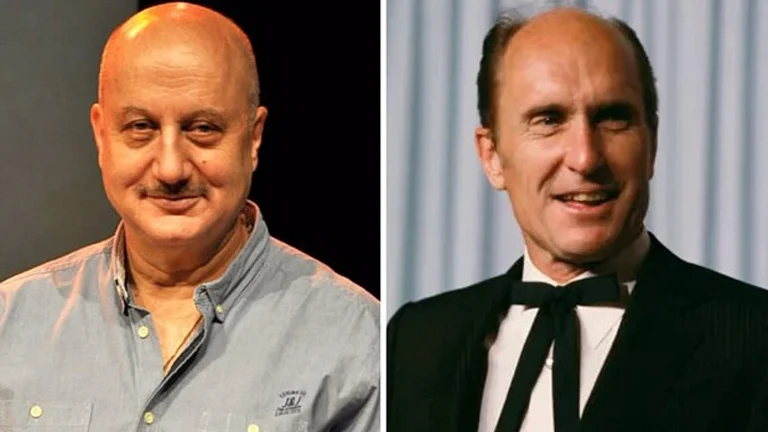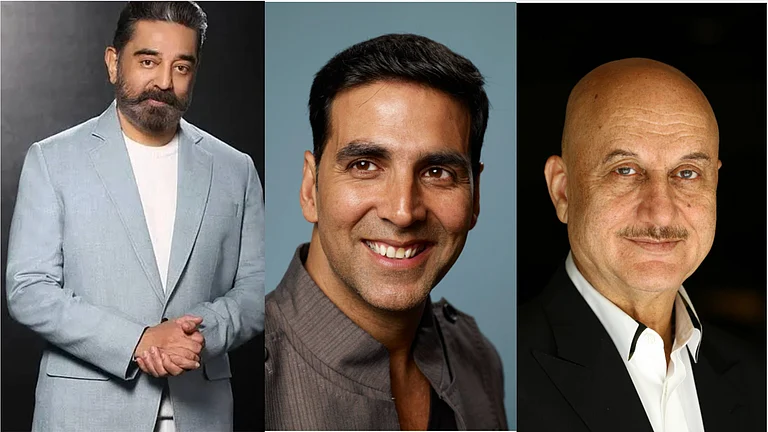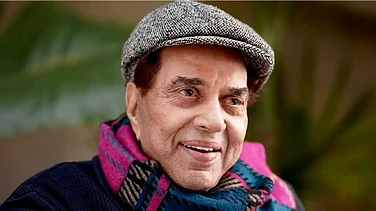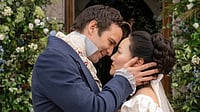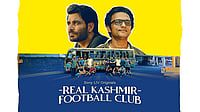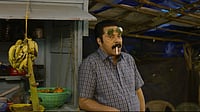If a film consists of specific moments that move you, does it automatically attest to its goodness? In an interview with Brut, Anupam Kher, who occupies the directorial chair twenty-three years after Om Jai Jagdish (2002), says that with Tanvi: The Great, he intended to “make a cool film about goodness.” But the question remains: does a film pitched as an exploration of goodness necessarily make a good film?
Tanvi: The Great, made on a budget of six million dollars, tells the coming-of-age story of an autistic girl, who loses her father at a young age—an officer in the Indian army, killed in a blast on his way to Siachen. Fifteen years after his death, we meet Tanvi (Shubhangi Dutt) and her mother (Pallavi Joshi), gearing up for the drive to Lansdowne to call on Retired Colonel Raina (Kher), her grandfather. Tanvi takes up residence with him in the cantonment area of the “Garhwal Rifles” for the months her mother is away, participating in the proceedings of the World Autism Foundation in New York. Here, Tanvi dreams of joining the Indian army to carry out her father’s unfulfilled dream of waving the Indian flag at Bana Post in Siachen.
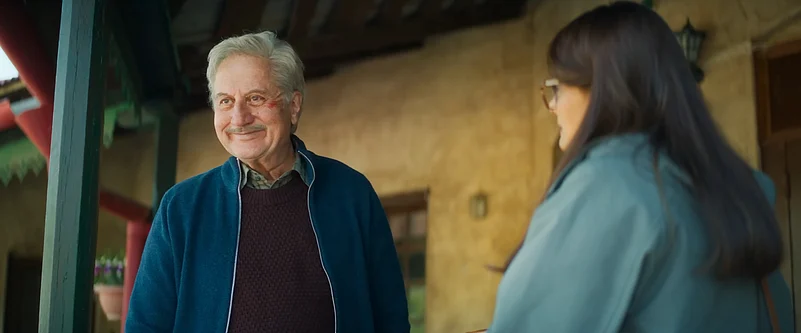
Kher, as co-writer-director, introduces a physical regimen along with emotional heftiness to Tanvi’s journey through enforced nationalism. Unlike, say, Sharan Sharma’s Gunjan Saxena (2020), where patriotism quietly surrenders to Gunjan’s desire to become a pilot, Tanvi’s individuality and her instincts are dwarfed under the weight of Kher’s one-dimensional gaze at the military establishment. The army is understood via the single register of bravery in this film. It is only convenient then to mortgage the joy, hope, and simplicity of Tanvi against the violent destruction of life in/by the military forces. Moreover, to imply that somebody on the autism spectrum is unable to grasp the shadows of mourning betrays a refusal to engage with the formations of grief and dreams in neurodivergent individuals.
Suppose the film resolves this intricacy by simply projecting the image of her father as Tanvi reaches the peak of the Siachen glacier. In that case, the spectator is left with a flattening of Tanvi’s life, a superficial treatment of her worldview. The refrain “she is different, but no less” remains a hollow proverb, without inspiring a shift in perspective, a chance lost in the sea of militarisation. The interview scene—preceding the one where we see her hoist the Indian flag—depicts Brigadier Rao (Nassar) as the selector, gauging Tanvi’s capacity to follow rules. After successfully clearing the physical and written tests to enrol in the army, here she is asked whether she would shoot an enemy if she is ordered to do so by her superior?
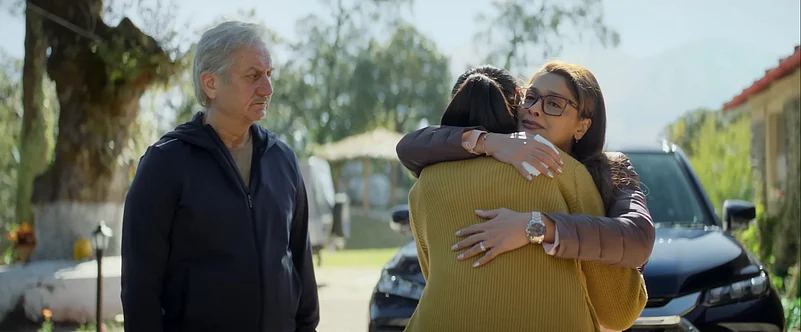
She firmly retorts in the negative. Assuming the position of a pacifist, she declares all wars to be bad. When asked why she wants to join the army, she replies, to fulfil her father’s dream. No special place is reserved for the army in Tanvi’s imagination; her desire perhaps stems from closing the incomplete arc of her father’s life. It is this nuance that Kher hesitates to dip into. Tanvi’s thought on war unfortunately finds no form, not even in abstraction.
When she says she would not shoot the enemy, the film’s overwhelming narrative and visual markers—which hitherto essentialised the army in the construction of the modern nation—dangerously position her perspective as politically naïve. The film registers no real threat from Tanvi’s simple and profoundly radical disagreement with the supposed indispensability of killing enemies to uphold a nation’s sovereignty. The everyday political rhetoric of “us” vs “them” could have been powerfully neutralised by Tanvi’s honesty and integrity, but the film remains largely unimpressed by the potential of its protagonist’s subjectivity.

One remembers Laal (Aamir Khan) from Laal Singh Chaddha (Atul Kulkarni and Advait Chandan’s 2022 adaptation of Forrest Gump) who—in a quest to find his friend Bala (Naga Chaitanya) after a bomb hits a section of their battalion—carries one injured body after another to safety without pausing to distinguish between a friend and an enemy. This heart-wrenching scene places the “outsider” inside the battlefield rather than withdrawing them to the outside, signifying the absurdity of lives lost in the wake of war. Tanvi: The Great, in contrast, peripheralises its central character by looking at her from an external vantage point, rather than allowing her consciousness to shape the world around her.
It must be noted that Kher concerns himself with the gestural, ensuring the actors hit the right dramatic tone and inhabit the body language of their respective characters, with most of the cast, including Shubhangi Dutt, Boman Irani (Raza Saab), Arvind Swami (Major Srinivasan), and Kher himself, delivering fine performances. That maybe the reason the political misfires are not insufferable in his film.



